 |
|
| |
| Experts call for National Nutrition Policy |
| |
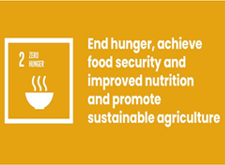 Nutrition and dietetics experts emphasized the need for the formulation of a National Nutrition Policy to raise awareness among the masses regarding the significance of nutrition and its impact on the health of present and future generations. Nutrition and dietetics experts emphasized the need for the formulation of a National Nutrition Policy to raise awareness among the masses regarding the significance of nutrition and its impact on the health of present and future generations.
Head of Department of Nutrition and Dietetics at NUMS Dr. Abdul Momin Rizwan in his remarks said it was imperative to have National Nutrition Policy (NNP) for a country like Pakistan as it was facing the triple burden of malnutrition including over nutrition, under nutrition and hidden hunger (micro nutrient deficiencies) which were extremely common in the country. These issues can be addressed through NNP which will be executed at the national and provincial levels with clear guidelines and goals. He said some good work in bits and pieces, was being done in the public and private sectors but that was not yielding desired results to root out malnutrition.
Shahid Fazal, a nutrition expert and Regional Advisor at Nutritional International, an international Non-Governmental Organization said that a consensus on NNP among the provinces was necessary for the formulation of such policy to ensure uniformity in its implementation at the provincial level as well as to achieve the set goals to tap the actual potential of Pakistani children.
Ch. Faiz Rasool, a Senior Policy Advisor at Global Alliance for Improved Nutrition (GAIN) said that under the chairmanship of the planning commission, some policy work had started and GAIN was also helping them to chalk out NNP which was expected to be finalized this year. |
| |
|
|
| 10 million deprived of safe drinking water in flood-affected areas |
| |
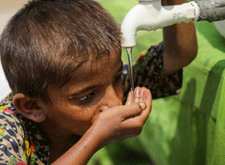 The crisis has left families in the flood-affected areas with no choice but to use potentially contaminated water. "Safe drinking water is not a privilege, it is a basic human right", said UNICEF Representative in Pakistan, Abdullah Fadil. "Yet, every day, millions of girls and boys in Pakistan are fighting a losing battle against preventable waterborne diseases and the consequential malnutrition." UNICEF warns that the lack of access to safe drinking water and toilets, as well as the presence of stagnant water, are contributing to "widespread" outbreaks of waterborne diseases such as cholera, diarrhoea, dengue, and malaria. The crisis has left families in the flood-affected areas with no choice but to use potentially contaminated water. "Safe drinking water is not a privilege, it is a basic human right", said UNICEF Representative in Pakistan, Abdullah Fadil. "Yet, every day, millions of girls and boys in Pakistan are fighting a losing battle against preventable waterborne diseases and the consequential malnutrition." UNICEF warns that the lack of access to safe drinking water and toilets, as well as the presence of stagnant water, are contributing to "widespread" outbreaks of waterborne diseases such as cholera, diarrhoea, dengue, and malaria.
According to the UN Children's Fund, beyond being a health hazard, the lack of proper toilets is "disproportionally affecting children, adolescent girls and women who are at added risk of shame and harm when defecating outdoors."
Unsafe water and poor sanitation are also "key underlying causes" of malnutrition. UNICEF highlights that a third of all child deaths globally are attributable to malnutrition, while half of all undernutrition cases are linked to infections caused by a lack of access to safe water, adequate sanitation and good hygiene.
In Pakistan's flood-affected areas, more than 1.5 million boys and girls are already severely malnourished, and UNICEF expects these numbers to rise. Malnutrition is associated with half of all child deaths in the country.
|
| |
| Call to ban new nicotine addictive products |
| |
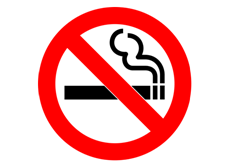 In a press release shared by Society for Protection of the Rights of the Child (Sparc), health activists have called for the need to recognize the health and economic harms of these products. Health activists have urged the government to impose ban on innovative products such as nicotine pouches, e-cigarettes and heated tobacco devices to save Pakistan's economy. In a press release shared by Society for Protection of the Rights of the Child (Sparc), health activists have called for the need to recognize the health and economic harms of these products. Health activists have urged the government to impose ban on innovative products such as nicotine pouches, e-cigarettes and heated tobacco devices to save Pakistan's economy.
Country Head, Campaign for Tobacco Free Kids, Malik Imran Ahmed said the economic cost of smoking in Pakistan was Rs615.07 billion which was equal to 1.6pc of Pakistan's GDP but the revenue generated from the tobacco industry was only 20pc of the total cost. He mentioned that innovative products contained nicotine which was a proven addictive substance.
"Nicotine also leads to more dangerous forms of substance abuse and can cause serious health and mental issues among youth. These products are claimed as cessation products but, in fact, are new forms of addiction. The research, claiming that they are less harmful than cigarettes, is funded by the tobacco industry. The independent research has warned about their harms," he said.
Sparc Programme Manager Khalil Ahmed Dogar mentioned that due to cheap and easy affordability nearly 1,200 children began smoking every day in Pakistan.
"The tobacco industry has already misled the government by claiming that e-cigarettes and nicotine pouches were less harmful and only for smokers who wanted to quit. However these products are openly promoted online and sold to young and new consumers. We cannot afford any more children getting addicted to these new products. It is the responsibility of policymakers to ensure that no anti-child policy is implemented in the country. Banning novel tobacco products is in our national interest and the government should not be afraid to take this much needed step," he said.
|
| |
|
| |
| Celebration of Women's Day at SPARC, under the theme "DigitALL: Innovation and technology for gender equality" |
 |
| SPARC celebrated International Women's Day under it's different projects, IWD is celebrated annually on March 8 as a focal point in the women's rights movement, bringing attention to issues such as gender inequality, lack of reproductive rights, and violence and abuse against women. |
|
| |
| Training on effective teaching techniques |
| |
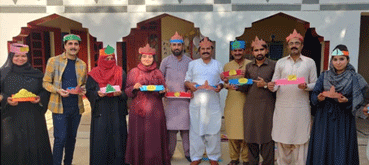 A comprehensive five days-training of trainers was conducted to enhance the capacities of the flood response project's team in order to help and assist government and non-government school teachers in selective areas of Kashmore and Jacobabad. A comprehensive five days-training of trainers was conducted to enhance the capacities of the flood response project's team in order to help and assist government and non-government school teachers in selective areas of Kashmore and Jacobabad.
The project titled "Education can't wait" intends to increase access of children and adolescents affected by floods to inclusive and quality learning opportunities, establishment of safe and friendly learning spaces, teacher trainings, and to increase access of children and adolescents to culturally appropriate, gender- and age-sensitive information on educational options and other social services
|
| Participatory approach to good governance through school management committees |
| |
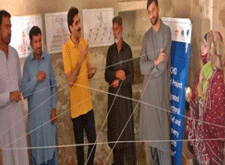 School management and community volunteers of flood affected community participated in an inclusive training on the roles and responsibilities of an effective school management committee. The members explored various interesting ways of improving school conditions. School based action/development plans were formed. The training was designed using participatory rural appraisal and visualization in participatory programming techniques. School management and community volunteers of flood affected community participated in an inclusive training on the roles and responsibilities of an effective school management committee. The members explored various interesting ways of improving school conditions. School based action/development plans were formed. The training was designed using participatory rural appraisal and visualization in participatory programming techniques.
|
| |
| Children resumed their education through temporary learning centers |
| |
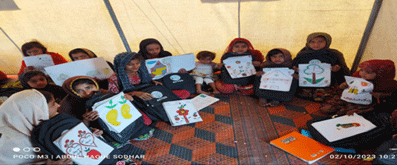 Almost eight months have passed but the school conditions are still not favorable to children in flood affected areas of Sindh. Well-designed temporary learning centers provided by ACTED, UNICEF and European Commission are serving well to respond to the basic educational needs of children. SPARC has resumed the educational activities for kids in 6 learning centers of district kashmore and 20 learning centers in district Dadu. Team is passionate to install more centers in Jacobabad. Almost eight months have passed but the school conditions are still not favorable to children in flood affected areas of Sindh. Well-designed temporary learning centers provided by ACTED, UNICEF and European Commission are serving well to respond to the basic educational needs of children. SPARC has resumed the educational activities for kids in 6 learning centers of district kashmore and 20 learning centers in district Dadu. Team is passionate to install more centers in Jacobabad.
|
| Support Mechanisms for Victims of Trafficking & Migrants Vulnerable to Smuggling |
| |
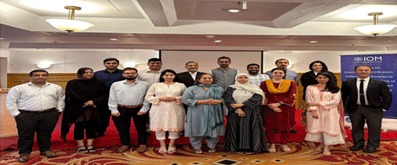 SPARC participated in a two-day training with civil society on issues of Trafficking in Persons and Smuggling of Migrants. The objective of training was to expand civil society's knowledge about the laws and Support Mechanisms for Victims of Trafficking & Migrants Vulnerable to Smuggling. SPARC participated in a two-day training with civil society on issues of Trafficking in Persons and Smuggling of Migrants. The objective of training was to expand civil society's knowledge about the laws and Support Mechanisms for Victims of Trafficking & Migrants Vulnerable to Smuggling.
|
|
|
|
| |
| Nashville school shooting: Six killed, including three children |
| |
 A female shooter wielding two "assault-style" rifles and a pistol killed three students and three adults at a private Christian school in Nashville on Monday, authorities said. The suspect also died after being shot by police. The violence occurred at The Covenant School, a Presbyterian school for about 200 students from preschool through sixth grade. The killings come as communities around the nation are reeling from a spate of school violence, including the massacre at an elementary school in Uvalde, Texas, last year; a first grader who shot his teacher in Virginia; and a shooting last week in Denver that wounded two administrators. Police said the shooter appeared to be in her teens. A female shooter wielding two "assault-style" rifles and a pistol killed three students and three adults at a private Christian school in Nashville on Monday, authorities said. The suspect also died after being shot by police. The violence occurred at The Covenant School, a Presbyterian school for about 200 students from preschool through sixth grade. The killings come as communities around the nation are reeling from a spate of school violence, including the massacre at an elementary school in Uvalde, Texas, last year; a first grader who shot his teacher in Virginia; and a shooting last week in Denver that wounded two administrators. Police said the shooter appeared to be in her teens.
The Nashville victims were pronounced dead upon arrival at the Monroe Carell Jr. Children's Hospital and Vanderbilt University Medical Centre. Other students walked to safety on Monday, holding hands as they left their school surrounded by police cars, to a nearby church to be reunited with their parents. |
| |
| Founder of Afghan girls' school project arrested in Kabul: UN |
| |
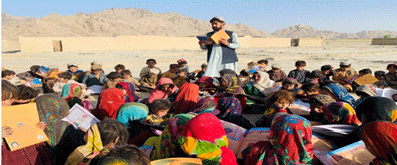 The founder of a project that campaigned for girls' education in Afghanistan has been detained by Taliban authorities in Kabul, his brother and the United Nations said Tuesday. The founder of a project that campaigned for girls' education in Afghanistan has been detained by Taliban authorities in Kabul, his brother and the United Nations said Tuesday.
The Taliban government last year barred girls from attending secondary school, making Afghanistan the only country in the world where there is a ban on education.
Matiullah Wesa, head of PenPath and advocate for girls' education. The organisation Matiullah founded which campaigns for schools and distributes books in rural areas has long dedicated itself to communicating the importance of girls' education to village elders.
Since the ban on secondary schools for girls, Wesa has continued visiting remote areas to drum up support from locals.
The Taliban have imposed an austere interpretation of Islam since storming back to power in August 2021 after the withdrawal of US and NATO forces that backed the previous governments.
Taliban leaders who have also banned women from university have repeatedly claimed they will reopen schools for girls once certain conditions have been met.
They say they lack the funds and time to remodel the syllabus along Islamic lines.
Taliban authorities made similar assurances during their first stint in power from 1996 to 2001 but girls' schools never opened in five years. |
|
|
|
|
|
|
| |
| |
| |
Our mailing address is: |
Follow SPARC on social media |
| |
House # 98, Street # 05, MPCHS, E-11/1, Islamabad
info@sparcpk.org | Tel # 051-2163011 |
|
|
|
|
|
| |
|